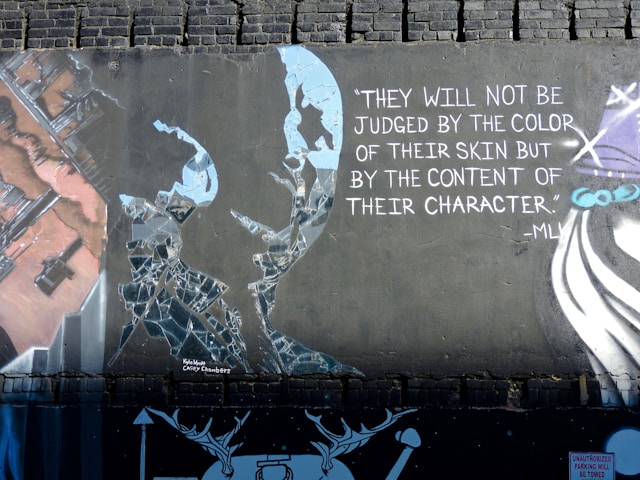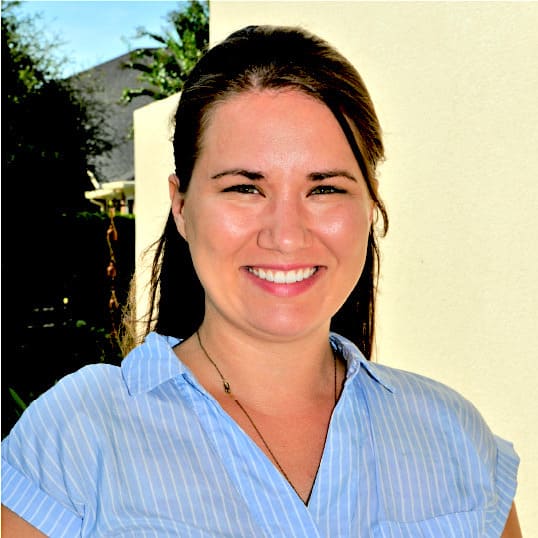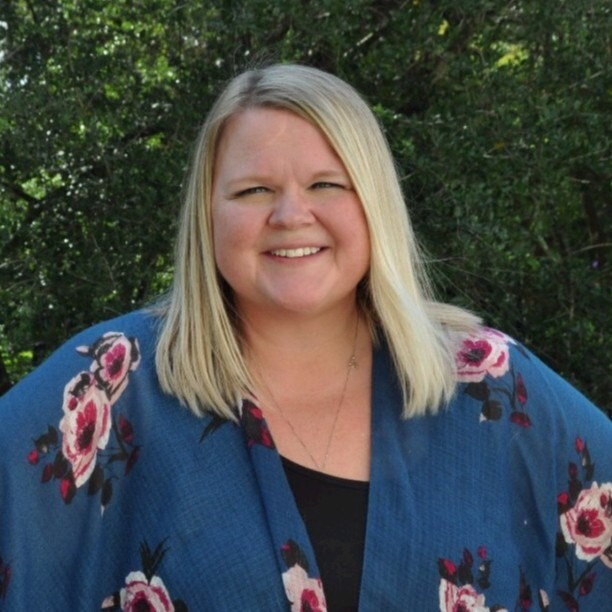Dr. Martin Luther King Jr is a beloved and larger-than-life figure in American history. He changed the landscape of this nation, from his love for God and influence as a Baptist minister to a leader of the civil rights movement, organizing peaceful protests against the unjust segregation, bigotry, and systematic oppression Black Americans faced every day in this country and in many ways continue to face. Dr. King’s calling was one of profound resilience and love. He possessed a rare combination of a man with a driving passion to bring forth a better world and the charisma to lead people faithfully in his vision.
This is not to suggest he did not face immense hardship for his staunch position on the need for freedom; it was a journey where he was often attacked and assaulted, misunderstood, and even jailed. He repeatedly continued to advocate in the fight for civil rights, against senseless violence, changing political landscapes, and against those who did not share his vision for the world. He saw the value in inspiring and leading others beside him: from the Montgomery bus boycotts to the march on Washington, where he delivered his great “I Have a Dream” speech to the protests in Selma that culminated in the Voting Rights Act in August of 1965.
Dr. King developed his views throughout his life and understood the importance of synergizing belief with integrity of character. While talking about Martin Luther King Jr. in sweeping and almost legendary terms can feel compelling, I want to bring attention to him as a communicator and speaker. His love for life and others makes itself known through his words. Looking back through the lens of history, we cannot fully know who he was in moments that were not documented. However, it is clear he held himself to a standard calling from a better world, where justice is not imagined but lived experience.
His commitment to instilling trust through confidence, communication, inspiration, authenticity, and other equally important characteristics made him such an inspiring leader. Trust is essential to and contributes to leadership, and throughout his life and work, Dr. King exemplified these qualities. As we talk about each one, it will become apparent that these characteristics apply to every leader.
Confidence
“Each of us must keep faith in the future. Let us not despair. Let us realize that as we struggle for justice and freedom, we have cosmic companionship.”
Dr. Martin Luther King Jr., Give Us the Ballot, 1957
Dr. King’s confidence and poise drew followers. He was confident in his ability to lead the Black American community to equality and justice. Had Dr. King lacked self-confidence, he would not have been able to change the lives of so many people. Dr. King did not let any negativity stop him from achieving greatness.
Possessing self-confidence is a significant trait for any leader to have. Self-confidence is the ability to be certain about one’s own competencies and skills. An effective leader must believe in their intent to be right. If you’re confident in your actions, you’ll gain your followers’ trust. No one wants to be guided by someone unsure of themselves or what they stand for. As a leader, you must make the right decision at the right time, ensuring those around you trust in the process and, at times, take a leap of faith with the belief in the vision you share as a guide.
Communication and Inspiration
“I have a dream that my four little children will one day live in a nation where they will not be judged by the color of their skin but by the content of their character. I have a dream today.”
Dr. Martin Luther King Jr., I Have a Dream, 1963
Perhaps Dr. King’s most iconic moment was in 1963 when he addressed 250,000 people in Washington, D.C., with his “I Have a Dream” speech. That speech was delivered during the March on Washington, where he called for an end to racism by giving the audience a passionate and personal glimpse of a world without it. Dr. King has inspired many with his speech, and now, over 60 years later, that powerful speech lives on and will for generations to come.
Communication that results in inspiration is the most lasting and effective, as you will give your followers the ability to hold your goals as their own, tangible and practicable. Direct communication that upholds your principles and can adapt to the group’s needs is a strength that can withstand conflict and create empowerment for mutual growth.
Authenticity
“There comes a time when one must take a position that is neither safe, nor politic, nor popular, but he must take it because conscience tells him it is right.”
Dr. Martin Luther King Jr., A Proper Sense of Priorities, 1968
Dr. King never shied away from taking the initiative to enact change according to his values and sense of morality, even in the face of direct and even violent opposition. He exuded this authenticity and, in turn, gave his followers more reason to trust in him.
There is an importance in being authentic to who you are as a leader and as a person, simply because that’s what people will see. They listen to your words. They notice your actions. If you do what you say and say what you do and lead with your conscience and beliefs, you are leading from a place of integrity and inspiration, giving others the courage to do the same.
High Ethical Standards
“The time is always right to do right.”
Dr. Martin Luther King Jr., The Other America, 1967
From a trust standpoint, ethics is everything, and ethics were central to Dr. King’s work. He was mobilizing a culture to hopefully change a broader culture of racism and oppression, and that meant holding society to a higher standard of ethics. He had confidence in the values by which he lived and did not feel threatened by possible differences of opinion. Dr. King had the capacity to be diplomatic and understand that when organizing for a shared goal, other people would contribute to that future with their own unique identities, experiences, and sense of ethics. Even among his peers, there were differences in personal ethics enough for Dr. King to have different approaches, but in those cases, they were all based on the same goal of ending racial discrimination so that Black Americans could live fulfilling lives in American society.
Ethics is something that is both felt and can be perceived by others, as what we live by is actionable. We all have individual ideas of what high ethical values are. Since we are individuals, that standard is not always consistent or a standard that is agreed upon by everybody. But at the same time, we need to recognize that we should aspire to be better, and doing so means, at times, looking at oneself with honesty and humility. As we aspire, we should encourage each other to live more ethically regularly and, again, be conscious and proactive about this thought process and whether we live up to the ideals we preach.
When you lead by doing what you love, you do not just lead but create the culture. If you can start a conversation about ethics with transparency, you can find the common threads of ethical values that you all share, and that can strengthen solidarity considerably.
Education
“The function of education…is to teach one to think intensively and critically. But education which stops with efficiency may prove the greatest menace to society. The most dangerous criminal may be the man gifted with reason, but with no morals. … We must remember that intelligence is not enough. Intelligence plus character–that is the goal of true education.”
Dr. Martin Luther King, Jr., The Purpose of Education, 1947
This quote is from Dr. King’s article for the Morehouse College student paper, The Maroon Tiger, when he was still a teenager. He recognized that knowledge, viewed as an independent succession of information, could only be utilized as a tool of ignorance and even used to enforce systems of oppression. Dr King’s humane view came with respect for the bigger picture, engagement in critical thought, humility, and self-improvement. He would go on to obtain a Ph.D. at Boston College, but he always stayed true to his words here, coupling knowledge and intelligence with a solid moral center.
Self-development through education is not just a matter of going to college. It is also the education of ethics, integrity, inspiration, belief, and hope. And just as Dr. King inspired others to believe in education from an inspirational and personal level as much as, if not more than, from a collegiate level, you can inspire your team to continue to learn to be creative, conscientious, and constantly developing as people who enter into all facets of life.
Outward Praise / Fair and Just Accountability
“We must develop and maintain the capacity to forgive. He who is devoid of the power to forgive is devoid of the power to love…there is some good in the worst of us and some evil in the best of us. When we discover this, we are less prone to hate our enemies.”
Dr. Martin Luther King Jr., Loving Your Enemies, 1961
Praise and accountability are two sides of the same coin. Dr. King often spoke in nuanced terms. His speeches included heartfelt and poetic expressions of his belief in the potential for significant change in the future. At the same time, they also included firm but uplifting practical discussions on how to do better and make this change happen more effectively. He communicated compassion to bridge this gap between what has already been accomplished and what can still be improved.
Everyone has positive characteristics, as well as characteristics that can be improved. Our strengths can be an inner driving force for what and how we do things, but our flaws can also hurt those we care about, especially if we lack awareness about what our flaws even are. It is crucial that we are committed to growth as individuals and that we contribute to the team’s overall betterment. And it is up to us, as leaders, to focus and develop that leadership in ourselves, our team, and those around us.
Flexibility
“See, not only have we come a long, long way, but truth impels us to admit that we have a long, long way to go.”
Dr. Martin Luther King Jr., A Realistic Look at the Question of Progress in the Area of Race Relations, 1957
Though he has often been considered an idealist, Dr. King was a realist who knew that there was so much work yet to be done that it was a mistake to become complacent with what had already been achieved. He also knew that the road to succeeding in the goals of improving race relations in the United States would not be an easy one, and it was not enough to dream. Specific actions, careful planning, and self-sacrifice would need to happen to realize these goals. He had a tremendous ability for adaptability and continuing in the face of opposition.
Flexibility is the ability to change, develop, and grow what exists into something better. It is also the ability to adapt strategies when roadblocks and hardships emerge.
Being set in your ways and lacking the ability to change your mind is being complacent with mediocrity. Don’t rest on the status quo. Always look to the future, always look for the best, always look for trust, and continuously develop trust in yourself and others.
Safety and Empowerment
“Forgiveness is not an occasional act. It is a permanent attitude.”
Dr. Martin Luther King Jr., Love in Action, 1963
Dr. King understood that forgiveness was a method of empowerment. In his 1963 “Love in Action” speech, he went on to describe how the hatred he was helping to lead the fight against was more of a “blindness,” and as such, it was something that could be changed. Although it would take more than compassion, he knew it was the first step to forge a path to a world without such prejudices.
We need to develop in ourselves the ability as leaders to empower our people and then, with that empowerment and guidance, trust our people to make the best decision. We may have to coach them to develop critical thinking to improve integrity in their thoughts and safety and concern in their actions, and we should do so, but we should always praise and develop that positivity they want to see from us as well.
Leadership Centered in Love
“Never succumb to the temptation of becoming bitter. As you press on for justice, be sure to move with dignity and discipline, using only the weapon of love. Let no man pull you so low as to hate him. Always avoid violence. If you succumb to the temptation of using violence in your struggle, unborn generations will be the recipients of a long and desolate night of bitterness, and your chief legacy to the future will be an endless reign of meaningless chaos.”
Dr. Martin Luther King Jr., The Most Durable Power, 1956
“And so I say to you today, my friends, that you may be able to speak with the tongues of men and angels; you may have the eloquence of articulate speech, but if you have not love, it means nothing.”
Dr. Martin Luther King Jr., Where Do We Go from Here?, 1967
Time and time again, Dr. King returned to the concept of love in his speeches and sermons, with some having love as their central concept. He believed that as long as his movement came from a place of love, they would always be rightfully justified in their actions to improve race relations. All of the other aforementioned qualities of a good leader that Dr. King demonstrated came from a basis of love.
Dr. Martin Luther King Jr. inspired those around him; he was a great leader who impacted the world immeasurably. His words still hold incredible value today because he led from the compassion by which he imagined better futures.
Leadership, in general, should be centered in a position of love, as love is timeless. It was as relevant in 1963 as in 1863 and as it will be in 2063. Love is the center of what we are, who we should be, and who we should become. That extends to our people, teams, relationships, and everything we do. Love is trust, and trust is love, and both are the cornerstones of true leadership, effective teamwork, and ongoing success.






